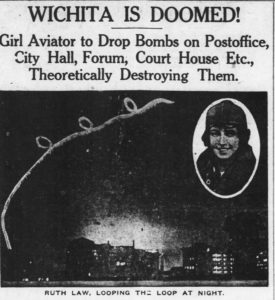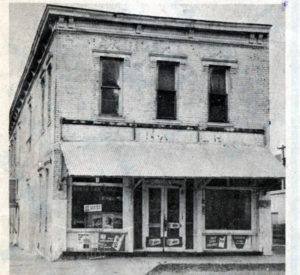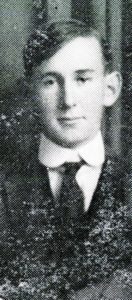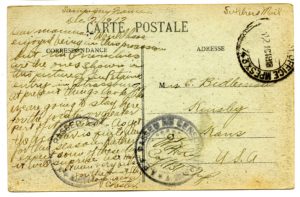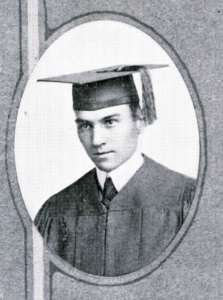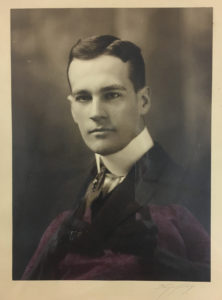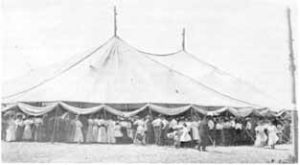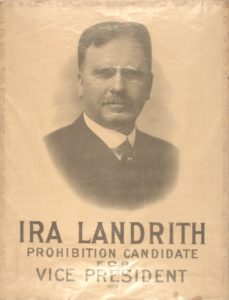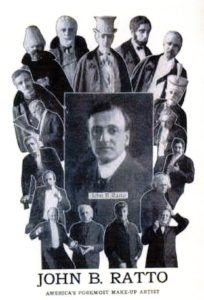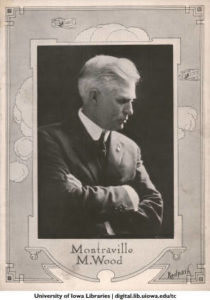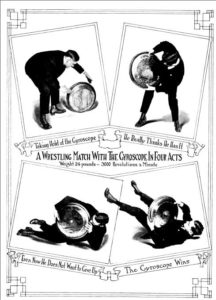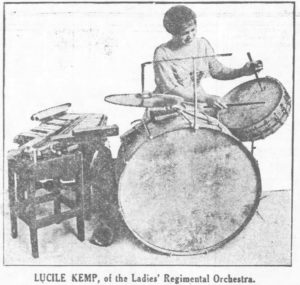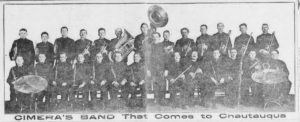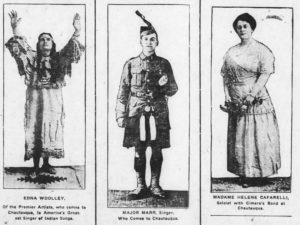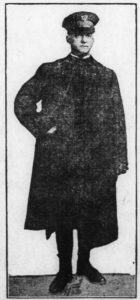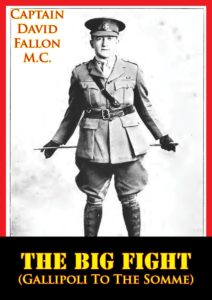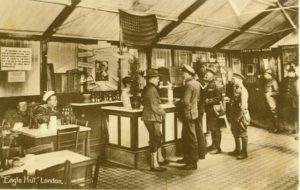In Bertha Schnatterly’s letter published in the Kinsley Graphic on May 2, 1918, she writes about a Liberty Bond parade in Washington, D.C.
“There was a big Liberty Loan parade yesterday afternoon. All government offices and the private business houses were closed for the event and everyone who had bought a bond was urged to march in the parade. All government employees especially were supposed to march, but many of them like myself thought it would be more entertaining to watch the rest so begged off. After watching the parade for several hours, one wondered how it was that anyone was left to watch it, but the streets were crowded. I stood with a friend on some steps and we had an excellent view of it and watched it pass from 2:30 until 4:30 and it was only about half finished, we decided we had enough and left. All of the departments and divisions carried banners and I learned of many branches of the government work which I did not know existed.
During the time the parade was passing, Ruth Law also gave an exhibition with her flying machine. She staged some very exciting stunts and it is hard to know which attracted the most attention. She was also to autograph all the bonds that were sold at the Ellipse after the parade.”
Because I had never heard of Ruth Law, I decided to do some research. I discovered that she was a very famous aviator at the time. She bought her first airplane in 1912 at age 21 from Orville Wright and began setting records. The announcement below left appeared in the Kinsley Mercury on December 15, 1916 after she established an American nonstop record from Chicago to NY.
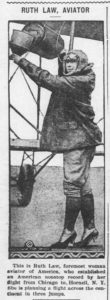
During World War I, Law visited President Wilson dressed in a men’s military uniform. She requested a commission in the Signal Corps to join the forces in Europe. Wilson refused and Law returned to using her flying skills to support Liberty Loan and Red Cross drives.
Ruth Law did make a trip to Kansas to perform at the International Wheat Show in Wichita in early October, 1918. The Kinsley Mercury promoted the event in the September 27, 2018 edition (above right):
“In her flights Miss Law interprets the role of a foreign invader making a raid on a city in wartime. By the use of artificial bombs she demonstrates how easily and how successfully an aviator could deal out death in bunches, and crumble to the ground the largest buildings in the city. In her day and night fights in Wichita…Miss law will theoretically blow up the Forum, Post Office, City Hall, Court House, and several ten story buildings….”
Miss law has been giving flights in the east for the last few months. She demonstrated to the residents of Washington, D.C. how easy it would be to blow that city to smithereens before preparations could be made to defend it.”
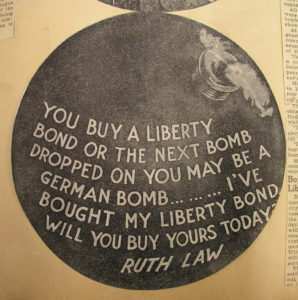
Perhaps this was part of what Bertha Schnatterly had witnessed back in April at the parade. Bertha went on in her letter to describe some other ways that Liberty Bonds were promoted.
“All sorts of inducements have been held forth to those who bought bonds this week. Those who purchased at the Italian War Exhibit were to receive a certificate that the bond was purchased in the President’s private waiting room at the union station, and to those who made their purchase last Sunday were allowed to go inside the big British war tank, which spent a week here. Unfortunately, I bought mine at the office the first time the solicitors came around so received no special credit. “
Bertha would not return to live in Kinsley after the war. She married Ernest Hedstrom, a man she had met in Washington. They would live and raise a family in Massachusetts. She would die in 1970 at the age of 75.

